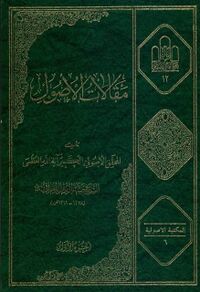Another crucial aspect of al-Iraqi’s teachings lies in his exploration of epistemology within a Shia framework. He delves into the means by which knowledge is acquired, scrutinizing the interplay between rational thought and divine revelation. His works highlight the limitations of human cognition while simultaneously acknowledging the essential role of prophetic teachings. Al-Iraqi argues that while reason is indispensable in the quest for knowledge, it must be complemented by a firm adherence to traditions passed down through the Imams. This synthesis of rationalism and tradition presents a nuanced understanding of knowledge acquisition that is particularly relevant for scholars and students of theology.
Al-Iraqi’s writings also reflect a profound engagement with the socio-political dimensions of Islamic life. He is acutely aware of the challenges faced by the Shia community throughout history, particularly in contexts of persecution and marginalization. His teachings advocate for a dignified resistance grounded in ethical principles and wisdom. Al-Iraqi emphasizes the importance of maintaining a constructive relationship with society at large, leveraging dialogue and understanding to foster coexistence. This dimension of his thought resonates profoundly in contemporary discussions surrounding interfaith relations and communal harmony.
Furthermore, Diya al-Din al-Iraqi’s influence is evident in the realm of theological disputes. His adeptness in refuting opposing views, particularly from the Sunni tradition, underscores his commitment to articulating Shia doctrines clearly and convincingly. He navigates complex theological arguments with finesse, often employing a dialectical approach that invites engagement rather than alienation. His capacity for addressing contentious issues without compromising the integrity of his beliefs exemplifies a model of constructive discourse that remains pertinent today.
Tags
Share this on:
[addtoany]


